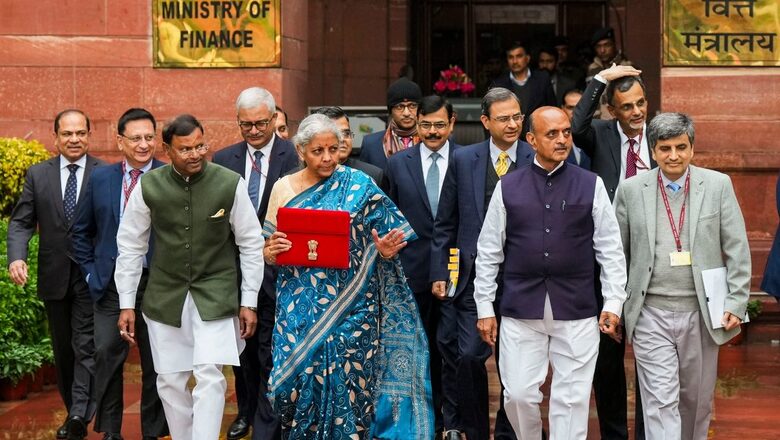
views
At the end of 60 minutes, there were no tax breaks – the go-to unction applied by finance ministers to massage the aam voter. There were no bejewelled sops to the fastest growing political constituency, the woman voter. There wasn’t even the standard oblation to the annadata. Many had expected Prime Minister Modi to have offered a perfectly justifiable sweetening hike in PM Kisan allocation upwards of Rs 8000. Inflation has after all caught up with the poor farmer in five years.
There was no mad rush to propitiate the gods of sentiment on Dalal Street other than announcing the historic 11 per cent CapEx spend. As it happens, the markets appear to be satisfied with the announcement possibly because it signals a commitment to infrastructure development that is needed to propel an advanced economy.
It’s not as if many (certainly not the public) would have blamed the Modi government for doling out sops. After all, the BJP is resolved to decimate the Opposition in a must-win high-stakes general election.
The beauty of Finance Minister Sitharaman’s interim budget is that it focused on the things that matter: staying on the course of fiscal consolidation, deepening commitment to physical and social infrastructure and signalling policy continuity (especially taxation front and manufacturing) to draw out private capital to spend in India where, after all, it is all happening.
The prime minister said in his first comments that his government’s budget has sought to empower the “only castes that matter’’ – youth, women, poor and farmers. A close reading of the budget appears to bear this out.
First, the budget announced a Rooftop Solar Scheme that targets 1 crore households. The idea is to help households generate 300 units of free electricity monthly. Aligned with PM Modi’s vision, this initiative targets annual savings of Rs 15,000-18,000, promoting energy self-sufficiency per household and encouraging consumption elsewhere. The policy marks a paradigm shift away from other models of governance that provide ruinous electricity subsidies at the cost of the exchequer.
Second, the budget also announced that the government will increase the ‘Lakhpati Didi’ target from Rs 2 crore to Rs 3 crore. The term ‘Lakhpati Didis’ refers to women members of Self-Help Groups (SHGs) who harness their entrepreneurial skills and earn a sustainable income of at least Rs 1 lakh per year per household. The scheme aims at fostering economic independence and women empowerment in 3 crore households. It is a well-established fact that putting money in the hands of women has a knock-on effect on GDP.
Third, to improve ease of living and ease of doing business, the interim budget has also provided relief to around 1 crore small taxpayers. “Petty, non-verified, non-reconciled or disputed direct tax demands, many of them dating as far back as the year 1962” will now be closed. These demands have continued to remain on the books, causing anxiety to honest taxpayers and hindering refunds in subsequent years.
If there was an overt nod to the upcoming general election, then it came when the finance minister announced that she was determined to puncture the Opposition’s propaganda. And that too not through empty rhetoric but by pledging to put out a “white paper comparing 2014-15 with now to showcase achievements.”
Clearly, the NDA shunned the lurch towards handing out ruinous revdis to realise its short-term electoral goals because it is confident that it has performed. The temptation to resist a massive splurge is also an admirable nod to propriety. An interim budget is an interim budget. It would be highly improper to treat it like a conveyor belt to deliver electoral bribes to the voter.
The NDA’s respect for form or convention is in stark contrast to the way the UPA approached the interim budget of 2014. The then-beleaguered Congress-led coalition government announced a series of aggressive across-the-board excise cuts to woo significant sections of the voting classes. It also rolled out the One-Rank-One-Pension (OROP) policy to lure in the politically significant armed forces constituency. More than this, it was accused by many experts of dressing up the budget math to make its performance look better on key macroeconomic indicators. It was all highly irregular.
In the end, UPA’s desperate tactics were rejected by voters. Now, it remains to be seen if the NDA’s quiet confidence will resonate.
Views expressed in the above piece are personal and solely that of the author. They do not necessarily reflect News18’s views.




















Comments
0 comment